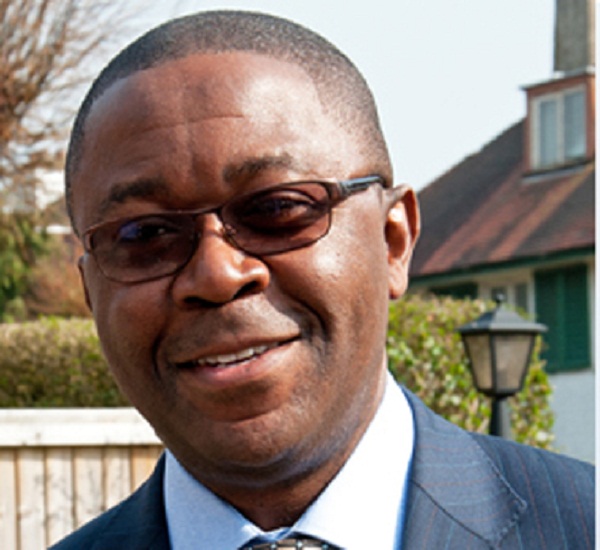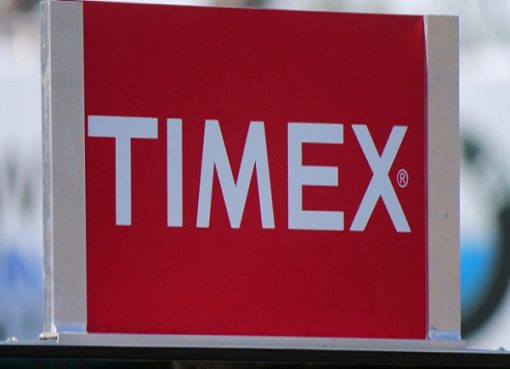Professor H. Sama Nwana, is the CEO and founding member of Atlantic Telecom and Media Ltd. He is also the Managing Partner in Cenerva, UK. He is a trusted advisor and opinion leader in Telecommunication, Media and Technology, TMT, advising corporate businesses such as MTN, Facebook, KPMG, Microsoft, USAID, Governments and Regulators in TMT. He presented a paper on “Rethinking Regulations for the Digital Ecosystem” at the just concluded workshop designed to keep regulatory, policy and stakeholders abreast of current development within the telecommunications, media and technology ecosystem. Prof Nwana spoke with our correspondent on contemporary issues on TMT in Nigeria
What is the relevance of understanding regulations, policies, and compliance, for the ‘consumers’, ‘citizens’, out there and industry people in this workshop?
Professor: That is a good question. The aim of the workshop was to introduce the new area of Over-the-top (OTT) services, which are the real confluence or intersection between what happens when the mobile sector or traditional telecom sector as we know it today meets the internet sector and when that meeting point happens, we end up with new services like OTT which comes with a feature which looks like the internet but yet is running on a platform which looks like a typical mobile telecoms platform today, in Nigeria. This can create some difficulties because it is like OTT having two parents; one parent being the current mobile telecoms industry and the other parent being the internet. Now, the internet is typically not regulated because it is just out there – some people call it the wild west, only some few weak regulations exist for the internet. Most telecoms industries in most countries are very heavily regulated, so the issue then for things like OTT services which is like a son or daughter of both, is the question of which regulations to follow – the ‘no regulations’ route from the internet side or the ‘heavily regulated’ route from the telecoms side. This is creating a lot of challenges in the industry today, hence the workshop was about establishing first, that those difficulties really do exist and secondly, what we may try and do about them, going forward in Nigeria.
It is obviously not enough to only provide solutions to or create awareness on the importance of regulatory reforms and policies, how do we follow through to ensure that these are implemented – what structures are in place to foster it?
Professor: We definitely have to put structures in place because there is nothing you can do in any sovereign country where you do not have the right to do so, unless you are explicitly told that you need permission to do it. In most cases, you need permission or a license, unless you are told that no permission is needed and you are free to proceed. So the issue now is, with this new services coming up should they move along the lines of ‘no permission, you can proceed’ or should they move along the line of this is a problem. Also, how do you do this in a sector where most of the current incumbents of the industry are shouting that something must be done about these ‘bad guys’, because they consider these new services as bad? On the other hand, the OTT service providers believe that they are doing a lot of good things to Nigeria, which consumers and citizens – like you and I, like, the Airtel, MTN and even the government are all saying ‘do something about them’. This workshop was about ‘be careful what you do, do not just jump in and do things because as we have seen from real examples based on countries like Uganda, people have done things that have turned out very bad for them.
Why do you consider taxing in the ICT sector as a terrible idea?
Professor: It is a bad idea because by definition, tax dampens demand. If I tax something, it is because I am effectively sending a signal that I want less of that thing to be produced or consumed. If you see some import taxes on some goods coming into Nigeria, as is the case with food, it is to encourage Nigerians to produce its own food, so you are taxing because you do not want that food to be coming from outside and want Nigerians to spend more time producing their own food. This is similar in the area of telecommunications, once you tax it, you are reducing the demand but every time you do this, you effectively reduce businesses going on in Nigeria because with the thousands of phone calls happening in Nigeria, a big percentage of that would be business transactions, families talking to each other – asking for money or doing whatever families do, then you tax it and the demand goes down, and even worse than that, you tax something that is at 1000 right now, you get a 1000 minutes, you tax it, then it goes down to 800 minutes, so now there is reduced activity in the economy which means you have reduced jobs, monies changing hands – that is the first thing. The worst thing however, about those taxes is that they impact the poor more than they impact the rich, we call those regressive taxes like a straightforward 9% tax for telecommunications services taxes. People in Lagos on average earn a lot more, so it is 9% off a larger amount for Lagosians. For instance, if a Lagosian on average is earning 10,000 Naira a month, a 9% tax would be just 900 Naira but in Yola if the average revenue for a person is 2,000 Naira a month and you tax them 9%, you will have hit them much harder than you have hit Lagos, because they would be paying almost the best part of 45% which is 900 naira. I would prefer to see the sector growing rather than a dampening of demand or the poor retrospectively taxed less. So, those taxes tend to be very regressive and the key message we are sending to the government is that anytime they want to introduce any tax to the ICT sector they should do an impact analysis, first – look before you leap, because I wonder why do we do this across Africa, where we make decisions, then jump out, in the air, we then realize that we have just jumped out of a three-storey building and then we fall and crash.
Do you think that we have an issue of government carrying regulators along? Because maybe if they did consult and have the right statistics, they would enforce better regulations and realistic policies.
Professor: The question is ‘do we have the data’? I do not think that we do our homework enough and that is one of my key arguments across Africa – I just do not see us doing enough homework to underpin regulations that we do across the continent because it should have been obvious in the case of Uganda, what those taxes were going to do – if they had asked me I would have told them – they do not need a brain surgeon to tell them that those numbers were going to be that bad, but they proceeded with it and knocked the economy of Uganda.
Based on the statistics you presented, more than 50% of Nigerians are not digitally connected to the 4G broadband in Nigeria, is there a solution to this or a chance to enable the process?
Professor: Yes, of course. According to the GSMA of Nigerians, about 49% of people are connected to ‘voice’, that means that more people are not connected even to normal ‘voice’ services in Nigeria, today. By the time you go to ‘data’ according to the GSMA, the number is less than 25%, so using the ‘voice’ as an example, what can make the 51% connected, is only if the government can make a real important policy decision to ensure that all Nigerians benefit from voice communication, in other words ‘voice’ becomes declared as a universal service – it becomes a right, just like your right to speech, religion, a house or to even breathe. Nigeria, like other African countries would just have to say that they cannot pretend that they can give everyone both voice, data, internet and everything, but at the very least you have a right to voice. And if 51% of Nigerians are not connected to voice today, what are we truly going to do, say, over 10 years to make sure that every Nigerian is connected to voice, but this may not necessarily mean that every Nigerian would have a mobile phone, it could be that every Nigerian home has a mobile phone, which means that everybody in that house has at least access to one mobile phone and invariably all Nigerians have access to voice communication even though it may not be unique, individual access. That is what policy is all about, we need to be creative in our policies across the continent to say that is the way we are going to connect the continent rather than just flying across all the time to Geneva where you see sustainable development goals which says the internet is a human right to every African child by 2025 – it is completely unrealistic, when they are not even connected to voice in 2020.
What would be your advice to regulators and policy-makers in the TMT industry?
Professor: Look before you leap, do not think these OTT services are bad. Most regulators are there to regulate for the benefits of consumers and citizens, that is why they are there. They should not necessarily be regulating for the benefit of operators and big companies, as these companies know how to take care of themselves. You are to regulate for the poor people on the streets who are not even connected, do not forget. When you are lobbied to do something as a regulator, always ask the question, based on your objectives for being there in the first place, every good governance and good regulators should be trying to improve the services of consumers and citizens, are the users of the services such as facebook or whatsapp, complaining?
What should be the one-take home from this workshop as either regulators or policy-makers in some capacity or as TMT industry members?
Professor: The un-included should be a priority. I feel passionate about that – my focus is not on those who are already with mobile phones and are already connected, they are not my problem. My problem are the people in remote places who are just not connected, and what efforts are being made in order to change this narrative because they have as much a right to be connected as any of the other people in the developed parts.










